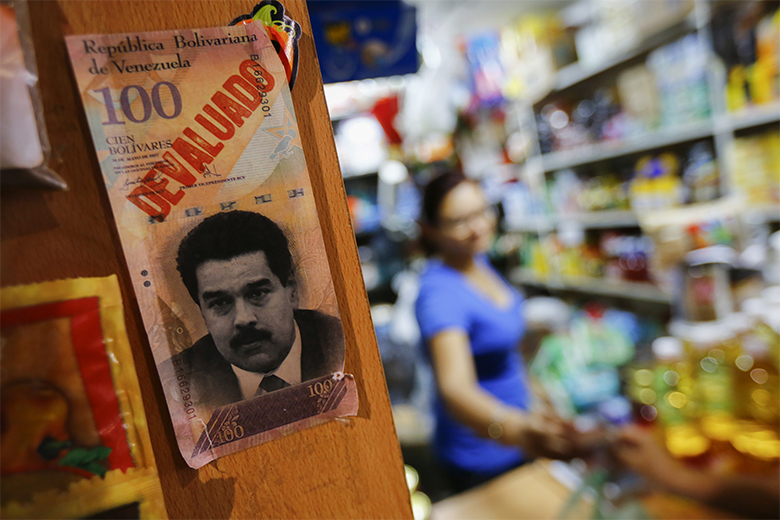Mexico blew up the LDC crisis in 1982 but the Brady Plan wasn’t introduced until 1989. The 1980s were a lost decade for most of Latin America as debt negotiations advanced slowly, stalled, and broke down.
The same dynamics have affected many other defaulting nations. Even with EU support the Greek debt crisis has been a tortuously slow affair, with debt plans agreed only to be shown to be too moderate to allow the country to grow again.
The common thread in all these painfully slow accords, of course, is the slow adjustment of creditors to the size of debt write-off required. Creditors won’t take big haircuts voluntarily. At least not in one go – they have to be led there in tranches when they see the unviability of a country trying to pay off restructured debts while still weighed down by capital and interest.
The same dynamics look like they will play out in Venezuela. The country is now in default on almost all of its foreign currency bonds and, despite Maduro tenaciously hanging onto power, some investors are already thinking aloud about the debt renegotiation to come.
Too high
One way to look at a possible write-down is to observe the country’s total debt as a percentage of GDP and compare it to history. At roughly 140% of GDP (it could be more including PDVSA), that would put the write-off at between 65% and 70%, according to statistics compiled by Capital Economics.
Some holders of Venezuelan bonds say that’s far too high: the country’s oil reserves and the scope for privatizations (debt-to-equity deals) means, they say, the write-off should be much lower.
One way to accommodate this dynamic is to look at external debt as a share of a country’s exports – the rationale being this is a more accurate gauge of a country’s hard currency income and ability to pay off external debts. But Capital Economics says this hasn’t historically been a reliable indicator of debt relief. Debt write-downs in Greece (2012) and Argentina (2001) were both between 70% and 75%, despite having very different external debt/export ratios.
Another complication for Venezuela is that China and Russia will be in the negotiating mix for the $30 billion and $10 billion they are owed, respectively. If those claims are valid then restructuring those bilateral debts may be difficult (China is not a member of the Paris Club), and they could simply refuse to restructure. If they play hardball then bondholders will need to be prepared to take even higher losses.
Investors who think they have got another distressed bargain in Vene debt should be made to think again about aggressive recovery rates: Venezuela has already lost enough time and suffered enough pain.
NOTE: If you want to trade at forex professionally – trade with the help of our robot forex developed by our programmers.
Signal2forex review


 Signal2forex.com - Best Forex robots and signals
Signal2forex.com - Best Forex robots and signals




